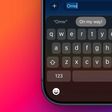Verizon Gets Green Light on FCC Waiver Needed for Wi-Fi Calling
Verizon Wireless is the only major carrier in the United States that has not introduced Wi-Fi calling, but it appears that could change in the near future as the FCC today approved the company's request for an FCC waiver [PDF] that will allow it to move ahead with its plans.
Like AT&T, Verizon applied for an FCC waiver to delay implementing a teletypewriter (TTY) service for deaf and hard-of-hearing people until December 31, 2017. Verizon plans to use real-time text (RTT) as an alternative and the waiver will allow it to avoid offering a TTY service until its RTT technology is deployed and operational.

On its website, Verizon says it plans to support Wi-Fi calling "in the future," but has not specified when Wi-Fi calling could be implemented. When AT&T was approved for Wi-Fi calling, the feature was turned on within days of receiving the go ahead from the FCC.
Wi-Fi calling will allow Verizon customers to make phone calls over Wi-Fi in situations where their cellular signal is low, automatically transitioning between Wi-Fi and a cellular connection as needed. AT&T, Sprint, and T-Mobile have all already implemented Wi-Fi calling, but Sprint and T-Mobile have done so without obtaining the necessary waivers from the FCC.
Popular Stories
Apple CEO Tim Cook was among a handful of top tech executives who attended a classified CIA briefing warning that China could attack Taiwan by 2027, according to a sweeping investigative report by The New York Times ($).
The previously unreported briefing was apparently held in a secure room in Silicon Valley in July 2023. The meeting is said to have been arranged at the request of the...
Apple has submitted production line orders for its upcoming foldable iPhone, effectively confirming that the device will launch this year, claims a Chinese leaker.
According to the Weibo account "Fixed Focus Digital," assembly lines recently received the orders from Apple, which has apparently allowed the leaker to learn the crease measurements for the device's 7.8-inch inner display....
In his Power On newsletter today, Bloomberg's Mark Gurman said Apple will have a three-day stretch of product announcements from Monday, March 2 through Wednesday, March 4. In total, he expects Apple to introduce "at least five products."
Subscribe to the MacRumors YouTube channel for more videos.
A week ago, Apple invited selected journalists and content creators to an "Apple Experience" in...



















